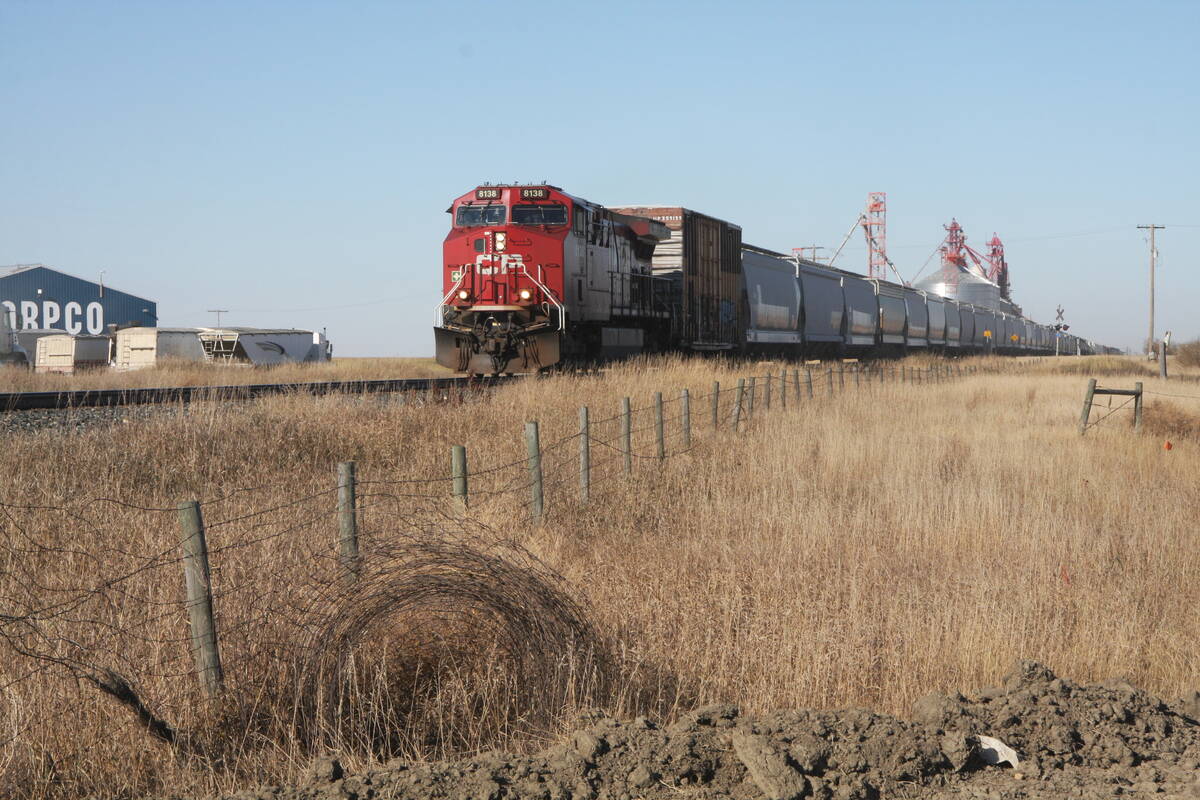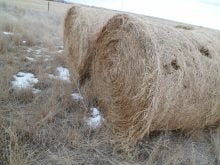REGINA – At the Western Canada Farm Progress Show, McLeod Harvest Inc.
has moved onto the blacktop where it competes for attention with the
big players.
This transition, from a curiosity in the new invention showcase a few
years ago to a display with all the usual trappings of tent, videos and
glossy brochures, is the outward sign of a maturing company.
The addition of a new European investor has helped the company slate
production of 25 to 30 units to be in farmers’ hands by harvest 2003,
Read Also

Industry wants ag to become national priority
Agricultural associations from across the country have agreed they want the prime minister to treat agriculture and agri-food as a strategically important sector.
said president Bob McLeod.
“We are using this show (to mark) the change in ourselves from a
research and development company into a commercial enterprise,” McLeod
said.
“We are hiring salespeople. We didn’t have salespeople before because
we weren’t selling.”
The McLeod Harvester system is a new take on harvesting. A pull-type
harvester collects the grain, chaff and weed seed from the field. A
grain truck delivers it to an electric or diesel-powered cleaning mill
that separates the grain and processes the chaff and weed seed into a
quality livestock feed that McLeod calls “graff.”
This harvest, four units will take in crops on two farms in Alberta and
two in Manitoba.
McLeod hopes that through farm equipment shows during the summer and
on-farm demonstrations this fall, he’ll gather orders for at least two
dozen units for 2003 delivery.
The mill-cleaner will be made by Loewen Manufacturing at Altona, Man.,
and the main body and assembly of the harvester will be done by
Northland Superior Supply Ltd. in Winnipeg.
To help inspire confidence, McLeod Harvest has an introductory offer of
a money-back guarantee.
If after the first harvest the buyer is dissatisfied, the company will
return $165,000 of the full $185,000 price tag. It will pay $145,000
after the second season.
“But we are convinced that once they start farming with it, they will
stay with it.”
New investment helped make the buyback offer possible.
In March, Emergo, a group of private companies with Dutch origins based
in Geneva, Switzerland, invested $1.5 million in McLeod Harvest Inc.,
representing a 26 percent equity interest.
“They have operations around the globe and they could be very
instrumental in helping us as we are ready to embark on international
markets,” said Gord O’Keefe, business development and finance officer
with McLeod Harvest.
“They recognize like we do that’s premature, but it is not that far
down the road either.”
The company is committed to a slow but steady evolution. It is a
strategy backed by the company’s other investors, which include
Winnipeg area businesspeople and Manitoba Hydro.
“We have to be very careful. Our worst fear is that some guy will buy
it and say ‘ah, it’s a piece of junk.’ It would kill us,” said McLeod.
“Taking on the combine is no small task. The combine was invented 150
years ago and we are the first serious ones to take change in
technology to the combine. It is a serious rethinking that has to take
place.”
For example, some farmers think the system would be slower than a
conventional combine because so much more material would have to be
unloaded from the harvester and trucked away.
McLeod disputes this. The truck driver would certainly be much busier
than one serving a regular combine, but there should be no delay of the
harvest.
Working within the recommended 6.5 kilometre radius of the grain
mill-cleaner, a 20-foot tandem truck should be able to keep up with the
harvester’s 750 bushel tank, he said.
For mixed farmers, the system’s ability to produce feed could eliminate
the need to produce or buy hay, saving time or money.
The first owners of the system, Don and Ken Armitage of Miniota, Man.,
used it for last year’s harvest. O’Keefe said the graff kept their herd
of 135 cows fed from November to April, replacing 650-700 round bales.
If valued at $40 a bale, that’s worth about $28,000.
Other benefits flow from the fact the harvester takes all the weed
seeds and drops little grain. This should lead to cleaner fields, fewer
volunteers and reduced herbicide costs.
McLeod is convinced that once farmers see the system in operation and
its financial benefits, it will sell itself.
“Twenty-five machines out there, I tell you, will get 100 machines out
there and 100 machines out there will get us 300 machines out there,
because the economics are so powerful.”














